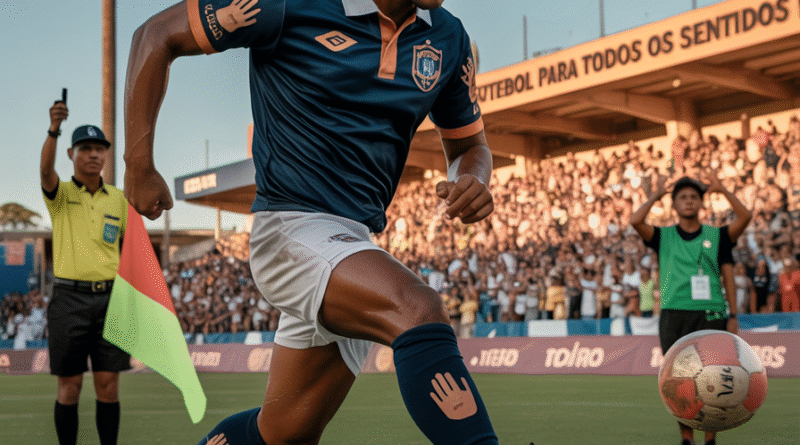Brazil to Launch First National League for Deaf Football in 2025
In a landmark move for inclusivity in sports, the Brazilian Sports Confederation for the Deaf (CBDS) has announced the creation of the first-ever National League for Deaf Football, set to launch in early 2025. The league will feature both men’s and women’s divisions, representing a critical step toward the formal development and visibility of deaf athletes in Brazil.
The project, backed by the Ministry of Sports and in collaboration with the Brazilian Football Confederation (CBF), is poised to become a model for deaf football development in Latin America.
A Game-Changer for Accessibility and Recognition
Historically, deaf athletes in Brazil have struggled with lack of institutional support, competitive structure, and media visibility. The creation of a federated national league provides a long-awaited platform for talent identification, structured competition, and national representation.
The league will begin with 12 men’s and 6 women’s teams, representing states across Brazil, including São Paulo, Minas Gerais, Bahia, and Pernambuco. Matches will be adapted with visual refereeing systems, sideline interpreters, and official use of Brazilian Sign Language (LIBRAS) for communication.
CBDS President Carlos Amaral said:
“This is more than football. It’s a movement to affirm that the deaf community belongs in the heart of Brazilian sport. Our athletes have the passion and skill — now they’ll have the stage.”
How It Will Work
The league will follow a round-robin format, culminating in a national playoff tournament and a Super Final held annually in Brasília. Teams will be composed of athletes who meet the criteria for deaf classification according to international standards.
Key features include:
- Real-time LED light systems to signal referee decisions and fouls.
- Specialized training for coaches and referees in LIBRAS and deaf-friendly communication.
- Live streaming with sign language interpreters and subtitles.
- Inclusion of youth teams through a U-18 development category.
Backed by Stars and Institutions
Several figures in Brazilian football have already voiced support for the league, including former national team players and current coaches. Tamires and Richarlison posted on social media expressing solidarity with the project and the importance of expanding access to all forms of the game.
The Ministry of Sports has committed initial funding of R$10 million, with plans for expansion based on performance metrics and community engagement. The CBF has also announced the inclusion of deaf football content in official training programs for youth and educators.
Cultural and Educational Impact
In tandem with the league, a national awareness campaign called “Futebol para Todos os Sentidos” (Football for All Senses) will launch in schools, stadiums, and media outlets. The campaign will:
- Promote LIBRAS as a recognized sports language.
- Share stories of deaf athletes through documentaries and podcasts.
- Encourage inclusive practices in school sports and club academies.
In the words of athlete and deaf football pioneer Juliano Silva, who is expected to captain one of the São Paulo teams:
“This league means we don’t have to prove we’re athletes anymore — we just have to play. And now, the world will watch.”
Looking Ahead: International Ambitions
The CBDS plans to use the league as a foundation for building a competitive national deaf football team, with the goal of qualifying for the 2027 Deaflympics, set to be hosted in Tokyo.
Preparations include:
- Advanced training camps.
- International friendlies against teams from Europe and Asia.
- Recruitment of professional coaching staff with expertise in adaptive sport.
Conclusion: A New Chapter in Brazilian Football
The launch of Brazil’s first National League for Deaf Football is more than a sporting milestone — it’s a bold statement of equality, respect, and opportunity. By investing in deaf athletes and their unique needs, Brazil continues to expand the definition of who gets to be seen, heard, and celebrated on the national stage.
And as the whistle blows for the first kickoff in 2025, one thing will be clear: football truly is for everyone.
